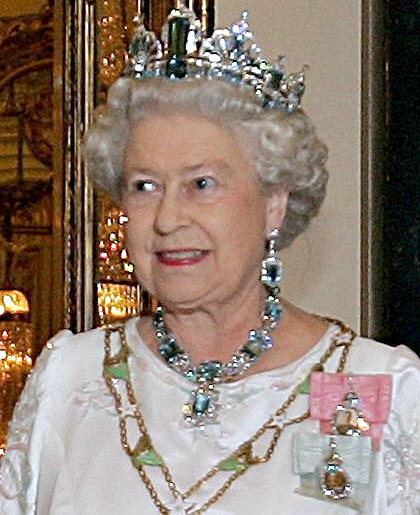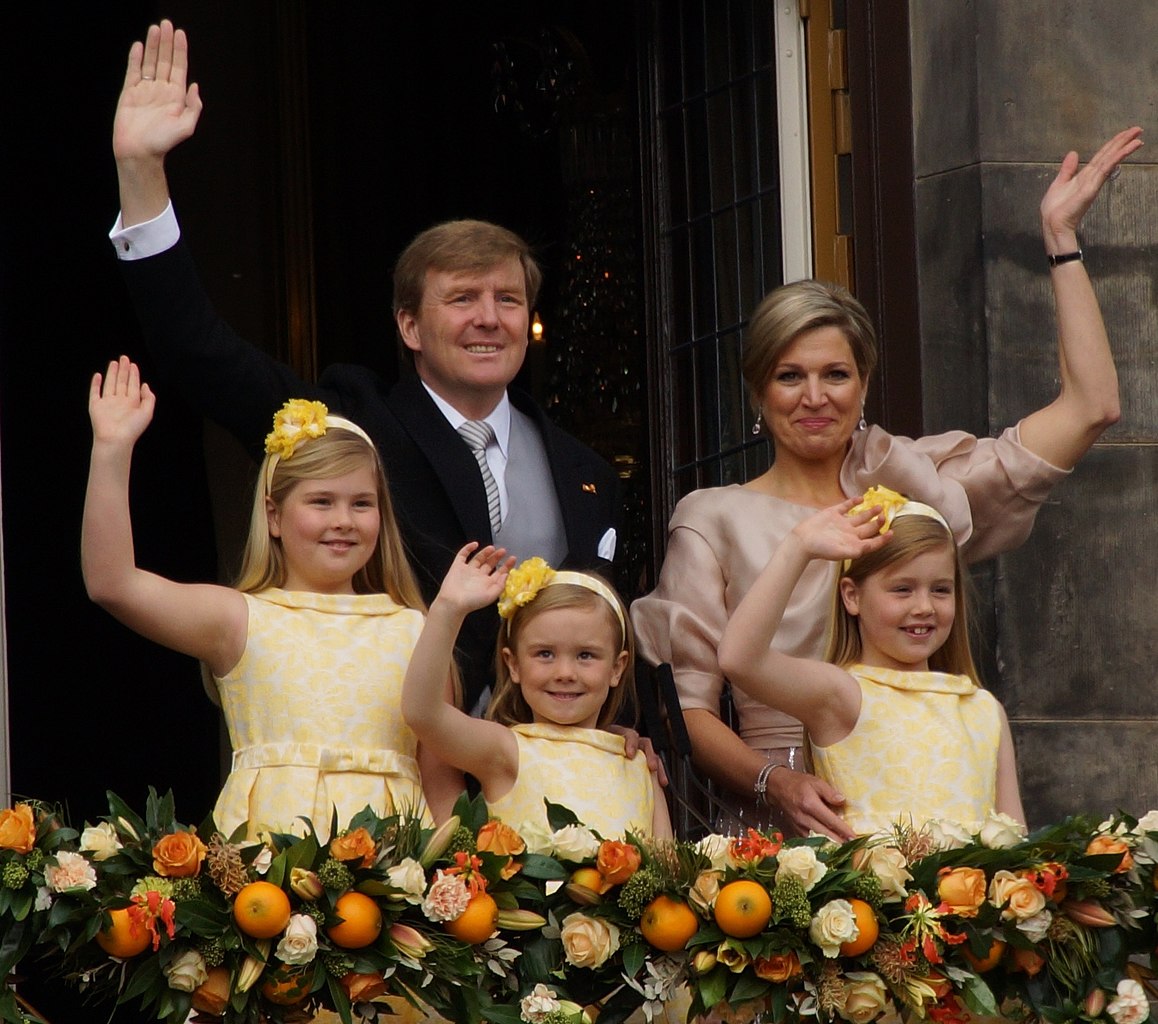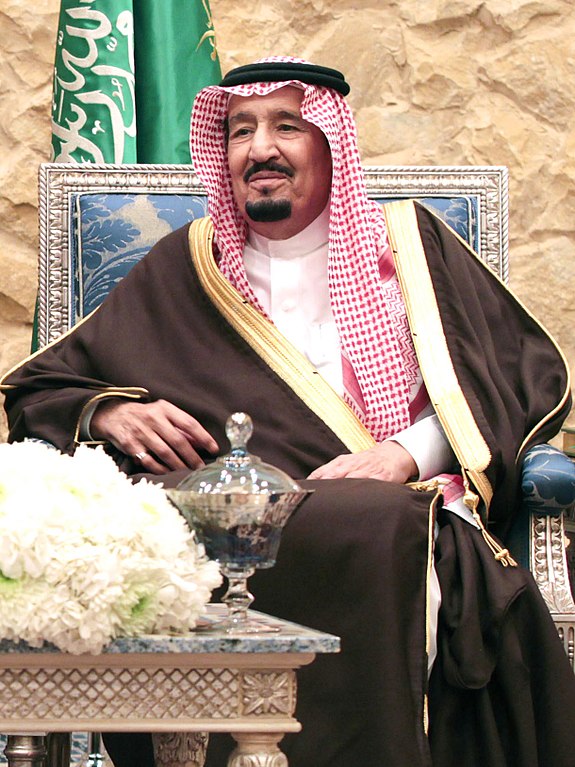A monarchy is a system of government where a monarch (a king or queen) is the “head of state” – the leader of the country. The monarch may not actually have much power, even though they are the head of state. Only in an “absolute monarchy” can the leader make the laws.

(Source: Ricardo Stuckert/PR (Agência Brasil), via Wikimedia Commons.)
In a monarchy, the position of leader is usually passed down in a family. A son or daughter might become the monarch when the person who is king or queen dies. Sometimes a monarch can be elected.
Monarchs usually have special names, called titles. Some well known titles for monarchs are: King, Queen, Emperor, Empress, Czar, Kaiser, Shah, Emir and Sultan. In a few cases, the monarch is actually a Prince.

The Netherlands has a constitutional monarchy.
(Soure: Floris Looijesteijn/Surtsicna , via Wikimedia Commons.)
Most monarchs today do not have much power. Many countries have a “constitutional monarchy”, where the monarch has a few special powers, but the job of making laws is left to the government. Spain, the Netherlands, and the United Kingdom are examples of this system. Sometimes monarchs have no special powers, but they are an important part of the country’s history and culture. Japan is an example of a monarchy like this.

Saudi Arabia has an absolute monarchy.
(Source: Robinson Niñal, via Wikimedia Commons.)
When a monarch has the power to make laws, it is called an “absolute monarchy”. Saudi Arabia, Qatar, and eSwatini (Swaziland) have absolute monarchies.
